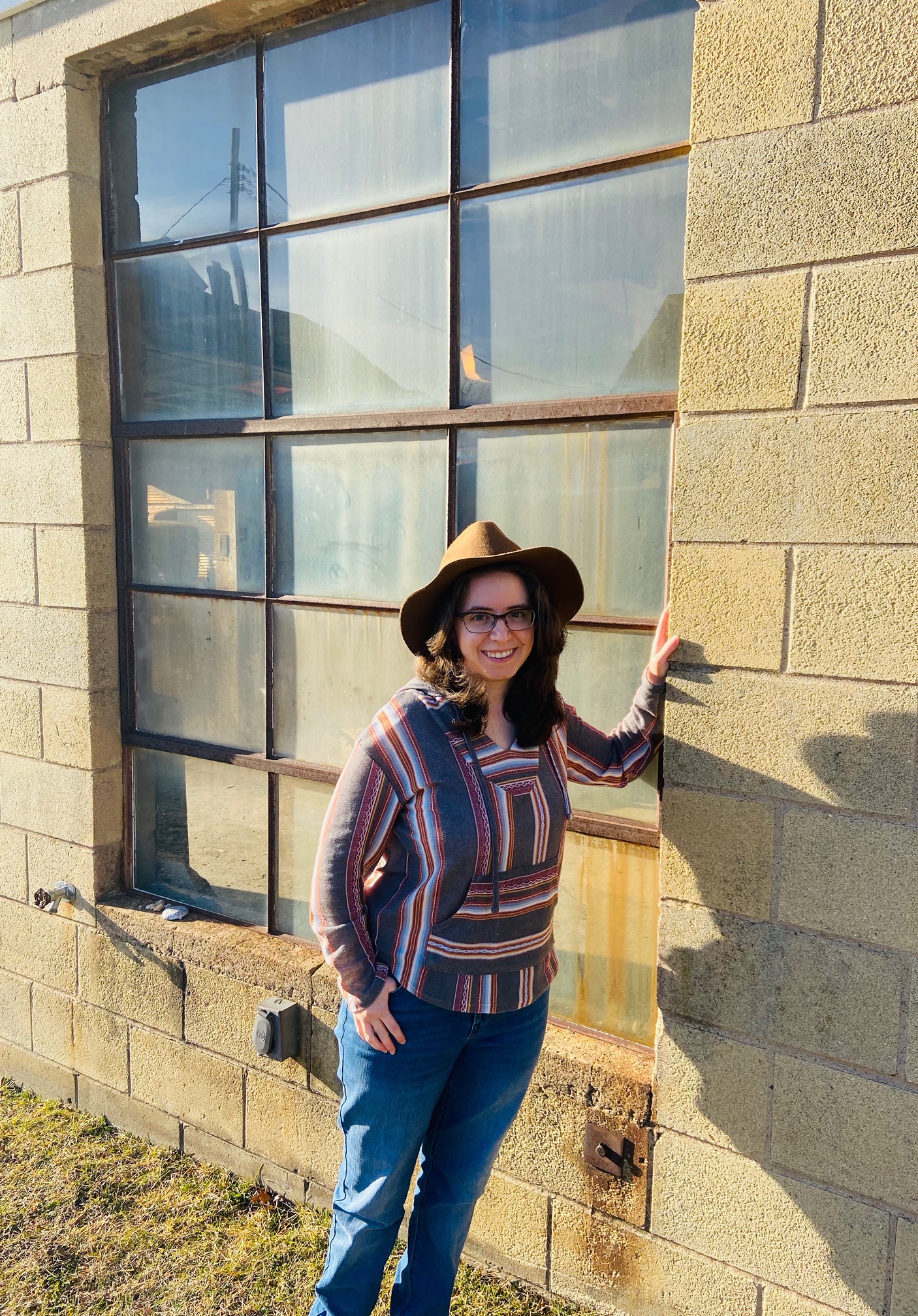ISSN: 1941-4137
POETRY THAT ENACTS THE ARTISTIC AND CREATIVE PURITY OF GLASS
POETRY THAT ENACTS THE ARTISTIC AND CREATIVE PURITY OF GLASS

Sara Pisak is a Staff Reviewer at Glass Poetry Press. Sara participates in the Poetry in Transit Program and has recently published work in Door is a Jar, the Deaf Poets Society, Five:2:One Magazine, Moonchild Magazine, Yes Poetry, PA Bards, Mookychick, and Boston Accent. When not writing, Sara can be found spending time with her family and friends. You can follow her writing adventures on Twitter: @SaraPisak10.
February 15, 2022
Edited by Stephanie Kaylor
Edited by Stephanie Kaylor
Review of Spells of the Apocalypse by Vivian Wagner

Spells of the Apocalypse
Vivian Wagner
Thirty West Publishing House, 2020
Vivian Wagner ends her poetry chapbook Spells of the Apocalypse (Thirty West Publishing House, 2020) with these words: “If you think of something else to write, write that. This is your last, best chance to recreate the world.” Recreating the world is precisely what Vivian Wagner does in each short poem included in this collection. The poems in the collection are filled with beautiful images juxtaposed with catastrophic events. Spells of the Apocalypse offers a unique look at the apocalypses facing society with a specific look at global warming and our relationship to the earth.
As Wagner recreates the world, she draws on nature for inspiration and asks readers to reevaluate their relationship to the natural world. Wagner describes our planet as follows:
This planet’s a web
of soil and rock,
mycelium and tree,
cloud and storm.
In the second half of the poem, Wagner folds into her descriptions humanity’s relationship with the multifaceted, ever-changing planet we call home. She states:
We can’t contain
all it offers, can only
live in the way air lives
under insect wings:
tentative, and always
already gone.
In a modern world, where it seems that society tries to tame and contain nature, Wagner’s metaphors illustrate that nature cannot be confined. Wagner’s work suggests that we should look to embrace and learn from nature, as our time on earth is fleeting. Filled with sadness and poignancy, the poem reminds us that our lives are as tentative and short as the breeze which rattles the branches of trees, the passing storm clouds, and the wind on which insects glide. Looking to recreate a better world, Spells of the Apocalypse asks readers to live as if they are passing through earth, careful to not exhaust the planet’s web of resources and risk humanity being the cause of the apocalypse.
A particularly poignant moment occurs when Wagner leaves behind metaphors and imagery, switching to a more epistolary style where earth is personified. Wagner writes:
Earth,
I’m sorry.
We don’t know
what we’re doing, what
we’ve done, what we’re going
to do.
Through the change in the style of writing, the speaker asks the reader to consider how they have wronged the living, breathing being that is the natural world. Further, the use of the first person places the reader into the poem and asks us to take responsibility for our actions with an apology of our own. In her apology letter to earth, the speaker also makes it clear that earth’s inhabitants share an “ignorance is bliss” type of attitude regarding the resources earth provides. Switching from more metaphorical heavy poems, to an epistolary form, one will find themselves waiting for earth to answer their letter. This style enters the reader into a conversation with earth and creates a deeper bond.
These poems carry the admission that humanity does not know what we are doing, one thing is sure: Spells of the Apocalypse is the perfect read for a world beginning to heal from a rather apocalyptic year. In a world of new normals, the collection asks to consider the “what ifs” of a world in peril and how we can recreate and rewrite a relationship with the world and our own personal apocalypses.
Visit Vivian Wagner's Website
Visit Thirty West Publishing House's Website
Glass: A Journal of Poetry is published monthly by Glass Poetry Press.
All contents © the author.
All contents © the author.





